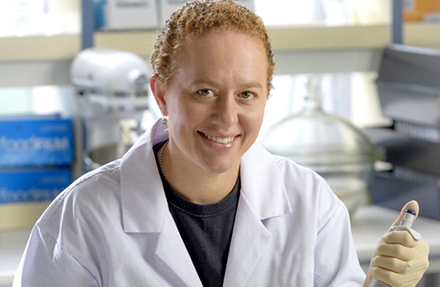A commitment to forest pathology and an ability to communicate complex science in a compelling manner has seen Dr Rebecca McDougal named as a finalist in the Bioprotection Aotearoa Science category at the NZ Biosecurity Awards. Source: Timberbiz
The awards, run by Biosecurity New Zealand, acknowledge individuals and organisations who work to safeguard the biosecurity of Aotearoa.
The winners were announced on 21 March and Ms McDougal was one of 24 finalists selected from a record 90 entries.
She was nominated by the Forest Owners’ Association and the Forest Industry’s Biosecurity Committee for her outstanding contribution to the protection of the plantation forest estate as well as her ability to communicate complex science matters to forest owners.
Ms McDougal specialises in DNA-based techniques to diagnose forest diseases. She says that working with DNA in this way provides accurate, swift identification.
“DNA provides really specific tools that allow for quicker identification than traditional methods like growing the organisms out of the plant material. This can be really hard to do so DNA pro-vides a shortcut to get the job done.”
This work has proved instrumental in determining species of Phytophthora pluvialis (red needle cast), a pathogen that travels through the air via water droplets, causing pine needles to redden, die and fall off the tree.
“Red needle cast affects a tree’s ability to capture sunlight and carbon, so it slows their growth. In a bad year we would see a 40% drop in productivity for those trees so early detection of this disease is key.”
From looking at diseases impacting planted forests, Ms McDougal is also turning her attention to nursery plants.
“A lot of new plant diseases that have affecting forests around the world have been disseminat-ed by nursery plants. The molecular DNA methods that we’ve used to study Phytophthora will help us examine the hygiene of plants in our nurseries so we can detect early disease before it’s taken out into the world,” Ms McDougal said.
“This is particularly important given the large amount of planting taking place across New Zealand at the moment.”
Ms McDougal says she felt honoured to be named an awards finalist and believes that biosecurity is something we can all play a hand in.
“I’m very grateful to have been nominated by the Forest Owners Association and the Forest Industry’s Biosecurity Committee. I get to collaborate with a lot of great people, and it is really exciting to be part of New Zealand’s forest industry which has developed a world-class forest surveillance system,” she said.
“I think New Zealand is in a really good position to be able to detect new biosecurity risks, not only in our forests but also at places like our ports and botanical gardens. But I do encourage all New Zealanders to keep an eye out and report any new or unusual weeds, bugs or plant diseases to the Ministry for Primary Industries.”
The winner in the Bioprotection Aotearoa Science category was the Cawthron Institute for their aquatic animal health research program.






